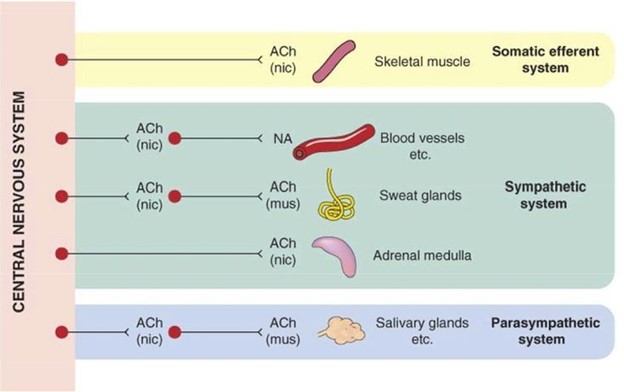A patient complains of worsening nasal congestion despite the use of oxymetazoline (Afrin) nasal spray every 2 to 4 hours for the past 5 days. The nurse's response is based on the knowledge that
Oxymetazoline should be administered in an hourly regimen for severe congestion.
Oxymetazoline is not an effective nasal decongestant
Sustained use of nasal decongestants over several days may result in rebound congestion
The patient is probably displaying an idiosyncratic reaction to oxymetazoline
The Correct Answer is C
Rebound congestion, also known as rhinitis medicamentosa, is a common adverse effect associated with the prolonged use of nasal decongestants. It occurs when the blood vessels in the nasal passages become dependent on the medication for constriction and lose their ability to regulate naturally. As a result, when the medication wears off, the nasal congestion worsens, leading to a cycle of continued use and worsening symptoms.
In this scenario, the patient's complaint of worsening nasal congestion despite using oxymetazoline every 2 to 4 hours for the past 5 days suggests the possibility of rebound congestion. The nurse should explain to the patient that prolonged or frequent use of nasal decongestants can lead to this effect and recommend gradually tapering off the medication use or discontinuing it altogether. The nurse may also suggest alternative non-medication strategies for managing nasal congestion, such as saline nasal sprays or steam inhalation.
Nursing Test Bank
Naxlex Comprehensive Predictor Exams
Related Questions
Correct Answer is D
Explanation
Leukotriene receptor antagonists (LTRAs) like Montelukast are commonly used in the treatment of asthma. They work by blocking the action of leukotrienes, which are inflammatory substances that can cause narrowing and inflammation of the airways in individuals with asthma. By preventing this inflammation, LTRAs help to reduce asthma symptoms and prevent asthma attacks.
The other options mentioned in the statements are not accurate or appropriate for teaching about Montelukast. Taking the medication only when experiencing symptoms is not the recommended approach, as LTRAs are typically taken regularly as part of ongoing asthma management. The statement about the therapeutic effect taking several weeks to notice is not accurate, as Montelukast can start to provide symptom relief within a shorter timeframe.
Additionally, the statement about increasing fiber and fluid intake to prevent constipation is unrelated to the use of Montelukast and may not apply to this medication specifically.
Correct Answer is B
Explanation
The Parasympathetic Nervous System utilizes the neurotransmitter acetylcholine. Acetylcholine is released by the postganglionic neurons of the parasympathetic nervous system and acts on target organs and tissues to elicit parasympathetic responses. It plays a crucial role in regulating various bodily functions, including digestion, heart rate, respiratory rate, and other rest and digestion activities.

Whether you are a student looking to ace your exams or a practicing nurse seeking to enhance your expertise , our nursing education contents will empower you with the confidence and competence to make a difference in the lives of patients and become a respected leader in the healthcare field.
Visit Naxlex, invest in your future and unlock endless possibilities with our unparalleled nursing education contents today
Report Wrong Answer on the Current Question
Do you disagree with the answer? If yes, what is your expected answer? Explain.
Kindly be descriptive with the issue you are facing.
